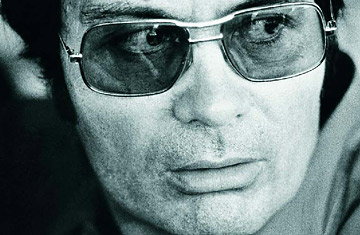
Tim Reiterman's Raven: The Untold Story of the Rev. Jim Jones and His People.
No one knows more about the Jonestown massacre than journalist Tim Reiterman. He began investigating Reverend Jim Jones, the twisted leader of the Peoples Temple cult, for the San Francisco Chronicle 18 months before Jones burst on the world's stage 30 years ago. Reiterman's articles caught the attention of Congressman Leo Ryan, who was concerned about constituents who had joined the group. Reiterman was one of a handful of journalists who accompanied the Congressman on a fact-finding mission to Jonestown, Guyana. On November 18, 1978, after meeting with Jones and his followers, their small party was ambushed by Peoples Temple gunmen as they were leaving. Ryan and four others were killed; Reiterman himself was wounded. The shootings were just the beginning of the carnage. Later that day more than 900 members of the Peoples Temple died in a mass suicide ceremony, most after they lined up to drink poisoned Flavor Aid. (See pictures of Jonestown).
After recovering from his injuries, Reiterman spent the next four years researching and writing a comprehensive book about the tragedy, "Raven: The Untold Story of the Rev. Jim Jones and His People," which has just been reissued by Tarcher/Penguin. The 624-page book is an extraordinary act of scholarship, the definitive account of an event that continues to fascinate and mystify. TIME senior reporter Andrea Sachs spoke to Reiterman from San Francisco, where he is now the news editor for the Associated Press in northern California.
Hear the extended interview with Tim Reiterman here:
TIME: Was Jim Jones a bad person from the beginning, or did he grow into one?
Tim Reiterman: Good and evil coexisted in Jim Jones throughout his life. I really do believe, having gone back to his birthplace in Indiana and tracing his life, that the seeds of the madness that the world saw in November 1978 were there from his earliest years. He was somewhat neglected as a child. He was part of an unconventional family where his mother was the breadwinner and his father was a brooding man whose work life was cut short by mustard gas scarring from World War I on his lungs. Jones sought out acceptance and a sense of family through churches, but at the same time he had a tremendous need for power and control. He would conduct little church services up in the loft of a barn and lock his playmates in there; later he used a firearm to try to control his best friend. These early incidents, as well as some cruelty to animals, were harbingers for the sickness that grew in him over the years.
TIME: But throughout his whole life, Jones found followers. How?
Even as a kid, he was a really engaging speaker and character. He would go out and play minister. He would entertain people. He had a way of spinning words and a power to his voice. He drew people who were basically religious for the most part in the early years. They were hard-working people, and they were drawn initially to a rare thing in the Midwest, an integrated Christian congregation. When Jones brought his group to California, he started attracting a broader base of people, too. Not just people from the churches, especially the black churches, but also young, idealistic, many of them college-educated people, who wanted to belong to an organization that practiced what it preached and had a social and political component. He also built through the communal organizations that he set up within the Temple a sense of family. At the same time, however, he was breaking down the individual family units within the Temple, and he was getting a tighter and tighter grip on his followers, just as he locked up his playmates in a barn in Indiana. He found ways to take control of and isolate his members from their families and from the outside. One of the things that he did was press them to give up their belongings, sign over their houses in some cases, sign over custody of their children. One of the cruelest things, I thought, was that he had them sign false confessions that they had sexually molested their children—which, of course, left those members vulnerable and bound them in a perverse way to the church.
